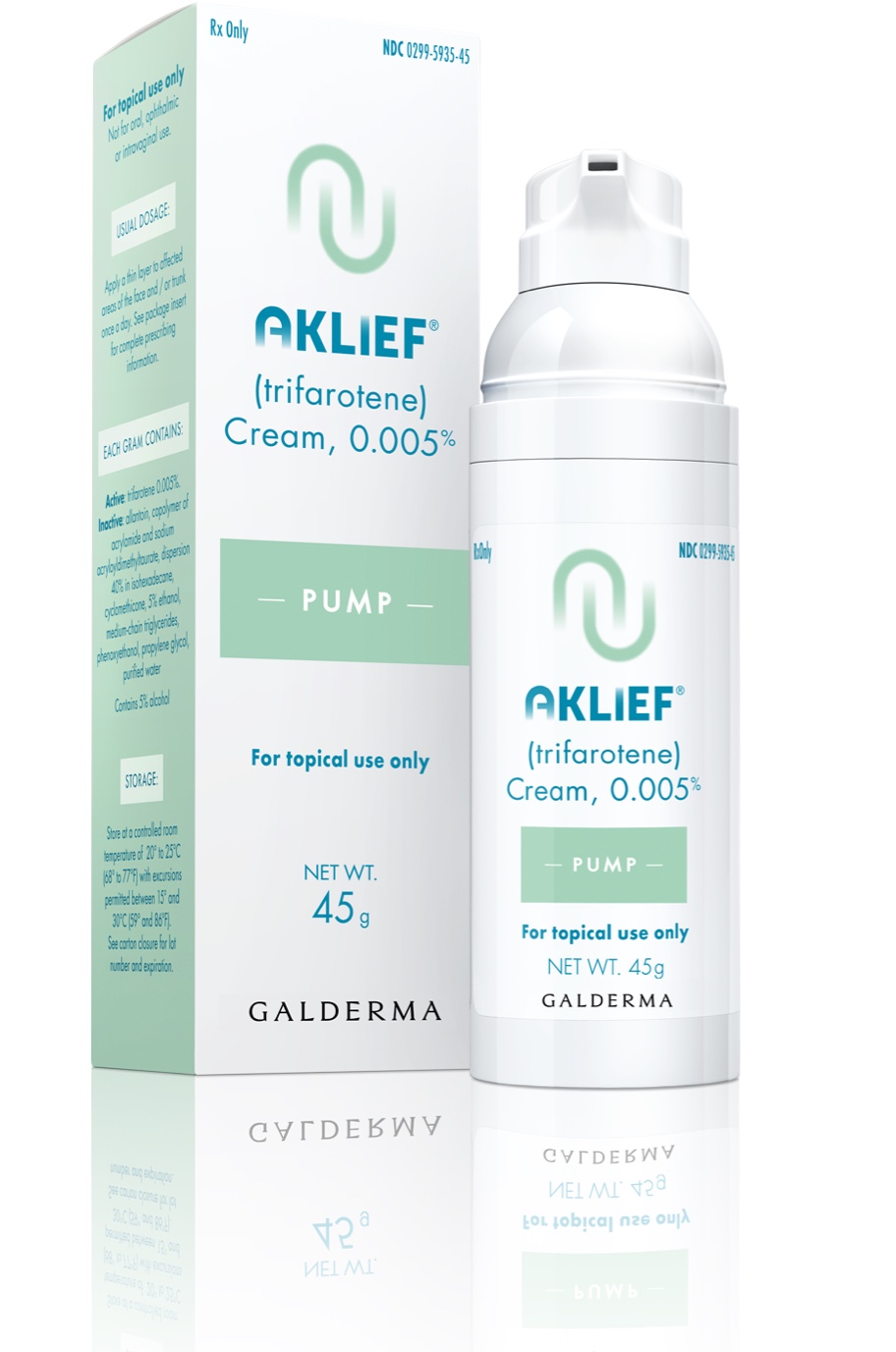Title: What Habits to Avoid During Trifarotene (Aklief) Treatment for Acne?

Title: What Habits to Avoid During Trifarotene (Aklief) Treatment for Acne?
Introduction
If you’re using Trifarotene (曲法罗汀, brand name Aklief) to treat acne, you’ve likely noticed its effectiveness—but also its potential for irritation. This topical retinoid works by normalizing skin cell turnover and reducing inflammation, but its success depends heavily on your daily habits.
To maximize results and minimize side effects, certain lifestyle adjustments are essential. Below, we outline key habits to avoid and offer practical alternatives.
1. Over-Cleansing or Harsh Exfoliation
Why?
Trifarotene already accelerates skin cell turnover. Over-cleansing or scrubbing can strip your skin’s natural barrier, leading to redness, peeling, and increased sensitivity.
Avoid:
Washing your face more than twice a day
Using physical exfoliants (e.g., scrubs, brushes)
Hot water (it dehydrates the skin)
Instead:
Use a gentle, non-foaming cleanser (look for ceramides or hyaluronic acid)
Pat skin dry—never rub
Stick to lukewarm water
2. Using Irritating Skincare Products
Why?
Retinoids like Trifarotene make skin more sensitive. Harsh ingredients can worsen dryness, stinging, or breakouts.
Avoid:
Alcohol-based toners
Fragranced products
Other acne treatments (e.g., benzoyl peroxide, salicylic acid) unless approved by your dermatologist
Instead:
Opt for fragrance-free, hypoallergenic moisturizers
Apply Trifarotene at night, followed by a soothing cream (e.g., Cicaplast or Vanicream)
3. Skipping Sun Protection
Why?
Trifarotene increases photosensitivity, making your skin more prone to sunburn and long-term damage.
Avoid:
Prolonged sun exposure (especially 10 AM–4 PM)
Tanning beds
Low-SPF moisturizers
Instead:
Use SPF 30+ broad-spectrum sunscreen daily (even indoors)
Wear wide-brimmed hats and UV-protective clothing
4. High-Sugar or Dairy-Heavy Diets
Why?
While diet doesn’t cause acne, studies suggest sugary and dairy-rich foods may trigger inflammation and worsen breakouts in some people.
Avoid:
Sugary snacks/drinks
Excessive dairy (milk, cheese, ice cream)
Instead:
Eat anti-inflammatory foods: berries, leafy greens, nuts, and fatty fish
Stay hydrated with water or herbal tea
Managing Side Effects
Common side effects (like dryness or redness) are usually temporary. To ease discomfort:
✔ Use a pea-sized amount (more isn’t better!)
✔ Try the “sandwich method”: Moisturize → Trifarotene → Moisturize
✔ Start 2–3 nights/week, then gradually increase to daily use
Patient Q&A: Real-Life Scenarios
Q1: Can I wear makeup while using Trifarotene?
A: Yes! Choose non-comedogenic, oil-free formulas. Avoid heavy foundations that clog pores. Mineral makeup is a safe option.
Q2: How long until I see results?
A: Initial improvements may take 4–8 weeks; full results often require 12+ weeks. Consistency is key!
Q3: What if my skin gets too irritated?
A: Reduce frequency (e.g., every other night), focus on hydration, and consult your dermatologist if irritation persists.
Q4: Can I combine Trifarotene with other acne treatments?
A: Only under medical supervision—mixing actives (like benzoyl peroxide) may cause excessive dryness.
Final Thoughts
Trifarotene (Aklief) can significantly improve acne, but smart skincare habits are crucial for success. Avoid harsh products, sun exposure, and acne-triggering foods to support your skin’s healing process.
If you experience persistent irritation or have questions about your routine, consulting a dermatologist can provide personalized guidance. For further assistance, you may also reach out to丁香客服 for professional advice.
Why This Matters
Understanding these adjustments helps you avoid setbacks and achieve clearer skin faster. By following these guidelines, you’re not just using a medication—you’re optimizing your skincare strategy.

